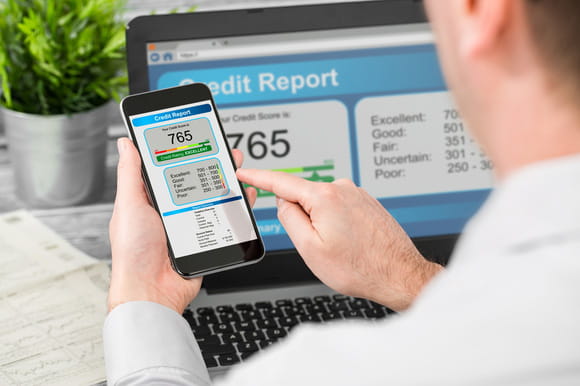What Is Debt Consolidation and Do I Need to Do It?

Some people run their lives on multiple calendars. They have one for work with all their meetings, a personal one for their own appointments, and a third that covers all the kids’ activities. If you’re someone who doesn’t have a problem keeping track of multiple things, then that might sound like organizational heaven to you—but for everyone else, it can feel overwhelming.
Having multiple types of debt can have the same effect. Remembering to make each payment at the right time can be taxing for some people, making the concept of debt consolidation that much more appealing. To help you better understand this approach to debt repayment and whether it’s the right one for you, we’ve gathered our insights on the topic.
How Does Debt Consolidation Work?
As the name implies, the idea behind debt consolidation is to collect all your debt in one place—that way you only have to keep track of payments to one institution. This can be done in a couple of ways. To start, there are lenders that focus specifically on offering debt consolidation loans. These loans will cover the amount you need to pay off your student and credit card debt, for instance, ideally at a lower interest rate. This is important as interest rates can add up over time, costing you more in the long run.
Secondly, individuals can also employ this concept without going down the formal route of a debt consolidation loan. For instance, if you own a home, you can take out a HELOC specifically to pay out your other debts. Or, you can open a personal loan or lower-rate credit card and transfer your higher rate balances.

Considering a Debt Consolidation Loan? Keep These Things in Mind
Like with every big financial decision, there are a lot of things to think about if you’re considering going down the path of debt consolidation. Does it make sense for your financial situation? Do you have a decent relationship with your lenders? How might your credit score be impacted, if at all? You should factor in all of these things—and what we’ve outlined below—as you make your decision.
Consolidating Debt Doesn’t Get Rid of Debt
While consolidating your debt will remove various payments from your bank statements, it’s important to remember that the debt is still there. Consolidating debt does not mean you are debt free. Where it will help, however, is in providing a comprehensive view of what you owe—and with that information you can create a short- and long-term plan for paying off that debt. Make sure it’s a plan that you revisit often. If your income goes up, for instance, you can talk to your lender about doubling up payments on occasion or increasing the amount of your monthly contributions.
It May Cost You Less Money in the Long Run
If you’re looking into a debt consolidation loan, make sure it has a lower interest rate than the combined rates of your current loans. Because what you owe on interest rates can rack up significantly over time, getting as low a rate as possible will end up costing you less money in the long run. This is particularly useful if you’ve maxed out a high-interest credit card, for example.
Debt Consolidation Loans Affect Your Credit
While debt consolidation can save you money, it might negatively impact your credit score. The problem with having a low credit rating is that it can make it more difficult to take out a mortgage or any other loans that could contribute to big life milestones.
To start, any hard inquiries made by a lender on your credit information can make up to a five-point deduction on your score. On top of that, once you’ve used your loan to pay off your credit cards, there’s nothing stopping you from using them again and gathering more debt on top of what you have—again, lowering your score. Lastly, not meeting your monthly payments could also affect your score. With all your debt consolidated, each individual payment would be larger, which could make it harder to catch up if you fall behind.
Whether debt consolidation feels like the right plan for you or not, it’s important for you to have an achievable plan for your finances. At Citadel, we get to know our members' unique situations and goals, so we can offer helpful solutions. Contact us to speak with an expert, or explore our personal loan or home equity options today.
